Tommy's National Centre for Miscarriage Research opens
25/04/2016
Today, we are delighted to announce that we are fulfilling a long-held ambition to open a centre dedicated to researching the causes of miscarriage.
Miscarriage is by far the biggest cause of pregnancy loss in the UK, and it’s also the least understood. Too often, women are left without answers and must endure three miscarriages before any clinical investigation can be carried out.
The best chance of changing the situation is through research, and that’s why we’re opening Europe's largest research centre dedicated to preventing early miscarriage.
The Tommy's National Early Miscarriage Centre is a partnership of three universities: The University of Birmingham, The University of Warwick, and Imperial College London. The three sites will run specialist clinics enabling 24,000 women per year to access treatment and support and participate in Tommy’s research studies.
The centre is seeking to understand why miscarriage happens, if it is likely to happen again, how to prevent it, and how to provide appropriate aftercare.
While miscarriage is by far the biggest cause of pregnancy loss in the UK, it’s also the least understood. In 2013/14, only 4% of the government’s health research budget was spent on ‘reproductive health and childbirth’, with just a fraction of this going towards miscarriage research.
Miscarriage causes untold heartbreak: 200,000 mothers and their partners are affected every year with 85% of miscarriages occurring within the first 12 weeks. Parents often receive no answers when it happens.
The research centre will also seek to understand better the emotional effects of miscarriage. Tommy’s has been working with women to share their personal experiences of miscarriage as part of our #misCOURAGE campaign. The resulting interest and engagement demonstrates the need for further understanding of the devastating psychological effect of miscarriage on women, their partners and loved ones.
Through pioneering medical research, the centre’s clinicians will uncover what’s going wrong in early miscarriage. They’ll save babies’ lives by turning their discoveries into screening tests and treatments, and launch clinics for pregnant women who are most at risk – giving them the latest improvements in care. They’ll share their work in national clinical guidelines, preventing miscarriages and developing better care across the country.
For referral
The first step is to visit your GP.
The NHS follows guidance which is set out in NICE guidelines and these say that the GP should refer you after you have had three miscarriages. Most doctors realise that this can cause considerable distress to women and many hospitals will investigate after two miscarriages.
After one miscarriage most women go on to have a healthy pregnancy, so it is unlikely you will be referred for further investigation after one miscarriage.
Talk to your GP, explain how you are feeling and ask to be referred as soon as possible.
To be referred to a Tommy’s miscarriage clinic, ask to be referred to a named Tommy’s unit when you visit your GP. The clinics are based at the following sites:
- Birmingham Women's Hospital
- University Hospital Coventry
- Queen Charlotte's & Chelsea Hospital and St Mary's Hospital, London
The names of the leading clinicians at our clinics can be found here.
One of the benefits of doing this is that you will be offered entry into a research study which may trial the latest tests and/or treatments.
The three sites will run specialist clinics enabling over 24,000 women per year to access treatment and support, and participate in Tommy’s research studies.
Meet the team
We have asked our new team what the new centre means to them and what they hope to achieve.
Professor Arri Coomarasamy, Director of Tommy’s National Centre for Miscarriage Research, at the University of Birmingham:
"Miscarriage is a common but deeply personal and often isolating experience for many couples. Tommy's #misCourage campaign is beginning to provide clear evidence on the widescale devastation it causes. At the new Tommy's National Centre for Miscarriage Research, we are determined to make a difference. The scientists and the clinicians from the three universities and the four trusts constitute a world class team. We are committed to understand the causes of miscarriage and find ways to prevent it. Tommy's investment in the new Centre is the best thing that has happened to miscarriage research. It will change many lives."
Professor Siobhan Quenby, Professor of Obstetrics and Honorary Consultant at University Hospitals Coventry and Warwickshire and the University of Warwick:
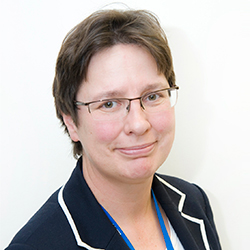
"I am excited to be part of the first national research centre dedicated to early miscarriage. It is also the first time that we will work together. The Tommy's National Miscarriage Research Centre gives us the best opportunity to date of ending the heartache for thousands of women and their families. I am confident that a cure for miscarriage is now within reach."
Professor Phillip Bennett, Director of the Institute for Reproductive and Developmental Biology at Imperial College London:
"As a doctor, I wish I could give my patients the answers they are looking for. We have the expertise, the technology and the drive, but we need more funding. Tommy's National Centre for Miscarriage Research gives us a real opportunity to make significant breakthroughs in early miscarriage."
Professor Lesley Regan, Director Recurrent Miscarriage ad Early Pregnancy Service at Imperial College London:
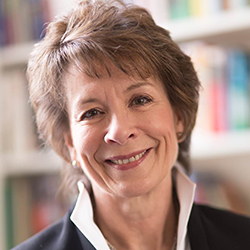
"So often my miscarriage patients have looked at me asked “Why did this happen to me?” The Tommy’s National Miscarriage Centre offers us the opportunity to combine the skills of many experts in miscarriage.
Working together we will be able to provide many more answers and solutions for our patients."
Professor Tom Bourne, Adjunct Professor, Imperial College, London:
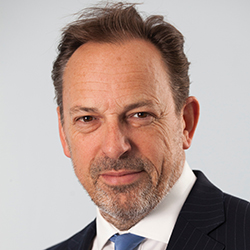
"The new Tommy’s centre is a really exciting development for us. In academic medicine a major hindrance is the inability to plan ahead and so know we can attract and keep the best research talent. The model that Tommy’s use - funding centres rather than short-term projects, will enable us to do this for the first time.
It was clear to all of us that the synergy that could be created by the three universities coming together to create a joint national centre would be the ideal scenario. By working together we are truly a case of the 'whole being greater than the sum of its parts' as we combine excellence across several key areas including important areas of basic science, running clinical trials, and diagnostics."
Professor Jan Brosens, chair of Obstetrics and Gynaecology at the University of Warwick:
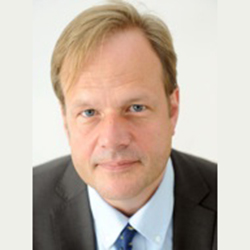
"Like our patients, I have been frustrated by the lack of real progress in the prevention of miscarriages. Although our understanding of early pregnancy has increased phenomenally in recent years, effective tests and treatments are as yet lacking. This centre, which is unique in the world, will deliver for thousands of couples."
Dr David Lissauer, Senior Clinical Lecturer in Obstetrics and Gynaecology, University of Birmingham:
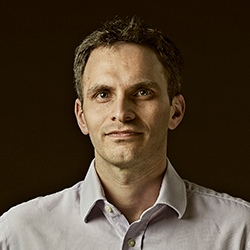
"The Tommy’s centre is such an important development as it is going to help us provide more couples with an explanation about exactly why their pregnancy unfortunately ended in miscarriage. This will be key to developing new treatments."
Read more miscarriage support
-
Read more about 'A conversation with Liberty's Mother '
A conversation with Liberty's Mother
-
Read more about 'Your views needed for Nobody's Patient '
Your views needed for Nobody's Patient
-
Read more about '‘Today is the day my sweet son, Johnathan Edward, was due’ '
‘Today is the day my sweet son, Johnathan Edward, was due’
-
Read more about 'Black Baby Loss Awareness Week 2023 '
Black Baby Loss Awareness Week 2023
-
Read more about 'Jeremy Hunt pledges preterm birth reduction from 8-6% by 2025 '
Jeremy Hunt pledges preterm birth reduction from 8-6% by 2025
